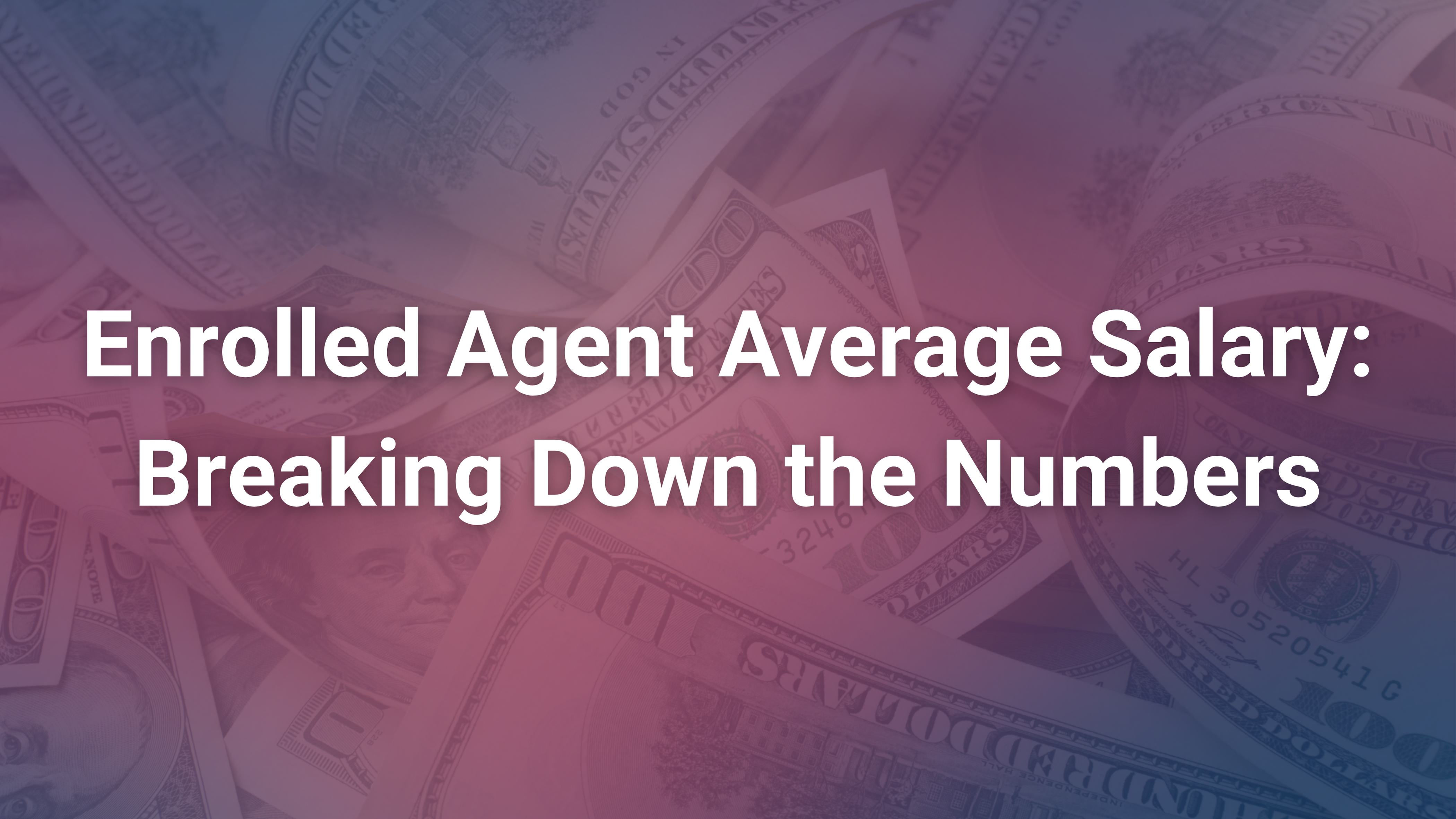When considering a career move, understanding earning potential is crucial. Enrolled Agents (EAs) are recognized experts in taxation, but what does that expertise translate to in terms of earnings? Let’s take a deep dive into the average salaries of EAs, what influences those numbers, and how EAs stack up against other professions in the tax sector.
EAs vs CPAs
Before we discuss the EA’s average salary, we need to discuss the difference between EAs and CPAs. EAs and CPAs often get lumped together without much thought as to their distinctions, but there are differences in purview and earning potential.
EAs are federally credentialed tax practitioners who can represent taxpayers before the Internal Revenue Service (IRS). EAs can file taxes and communicate on your behalf with the IRS.
CPAs are state credentialed accountants who have passed the Uniform CPA Examination and met specific education and experience requirements. CPAs don’t just handle tax matters, they also do audit and assurance, financial reporting, management accounting, and more.
So what’s the biggest difference between an EA and CPA? The biggest distinction is the that scope of a CPA is much broader than that of an EA, as an EA only really handles tax matters, while CPAs can do general accounting and finance related tasks.
The Basics: What’s the Average?
As of the last comprehensive data available up to 2021, the average salary for an Enrolled Agent in the U.S. ranged between $45,000 and $80,000 annually.
However, it’s essential to understand that this average encompasses both newcomers to the field and seasoned professionals with decades of experience.
An EA’s earnings are influenced by a few key factors:
Experience
Like almost every profession, experience plays a massive role in salary. New EAs might start on the lower end of the pay scale, but as they gain years of experience and a more extensive client base, their earning potential generally sees a considerable boost.
Location
Salaries vary based on geography, like in many other fields. EAs in metropolitan areas or states with higher costs of living, such as New York or California, often command higher salaries than those in more rural areas or lower cost-of-living states.
Specialization
EAs who specialize in niche areas, like international taxation or complex corporate structures, can often charge higher rates for their expertise.
Job Position
EAs who own their practice or firm have the potential to earn significantly more than those employed by a company, especially as their business scales. However, you have to understand that this upside comes with operational costs and the risks involved with running a business.
Affiliations
Being affiliated with well-established firms or having partnerships with attorneys or financial consultants can lead to more client referrals and, consequently, higher earnings.
Benefits Beyond the Salary
The other benefits EAs might receive are also valuable beyond the base pay. These benefits are more typical if you are employed by a larger firm:
- Health, dental, and even vision insurance
- Retirement plans or 401k matching
- PTO and vacation days
- Continuous education reimbursements or allowances
- Bonuses and profit-sharing arrangements
Comparing Other Finance Careers
When juxtaposed with other roles in the financial sector:
- Certified Public Accountants (CPAs): CPAs typically have a higher earning potential, with many experienced professionals making well into six figures. However, the CPA credential requires more extensive education and more challenging exams.
- Non-credentialed Tax Preparers: EAs usually earn more than tax preparers without any credential, given their specialized knowledge and the ability to represent clients before the IRS.
- Financial Advisors or Planners: The earnings of financial advisors can vary widely, but those with a solid client base and additional credentials, like the CFP, can have high earning potential, sometimes surpassing that of EAs. This is definitely not guaranteed, though.
Future Prospects
With the ever-evolving landscape of taxation in the U.S. and increasing IRS scrutiny, the demand for knowledgeable tax experts is unlikely to wane. As such, the prospects for salary growth and increased demand for EAs remain promising. In fact, there’s some reason to believe that EAs are more in demand than ever and will continue to be in demand due to many EA retirements.
Being an Enrolled Agent provides a respectable earning potential, particularly for those who expand their client base and/or have their own firm. While the initial years might see more modest earnings, with dedication and strategic career moves, EAs can enjoy a rewarding career. The biggest
